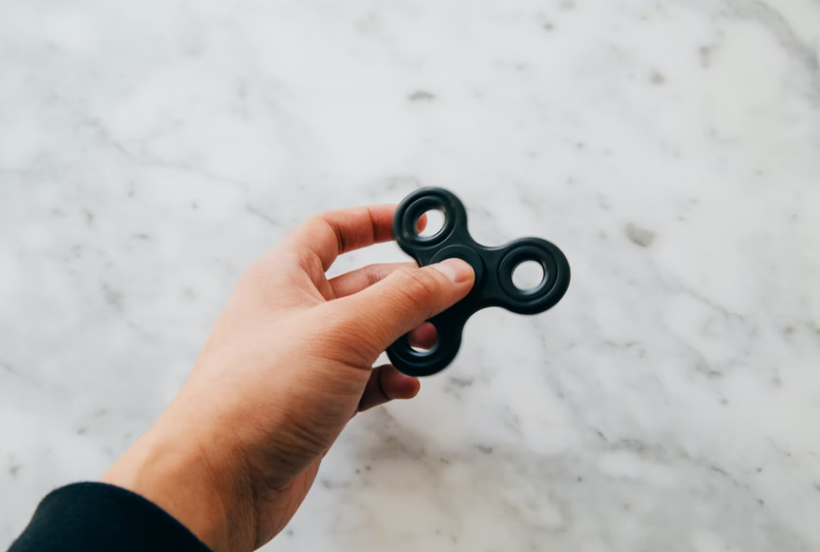Attention deficit hyperactivity disorder or ADHD is often thought to affect children and teenagers. However, the disorder is also common among adults. In fact, nearly 5% of adults in the U.S. are known to experience ADHD symptoms.
Typical symptoms of ADHD in adults include:
-
Lack of focus
-
Poor listening skills
-
Restlessness
-
Inability to stay organized
-
Improper time management
Adults with ADHD also have a difficult time starting new projects and maintaining personal relationships. Needless to say, these symptoms can wreak havoc on all aspects of a patient's life.
While prescription medications can alleviate the symptoms of ADHD, they cause significant harm in the long run.
The silver lining is that there are various natural treatments and home remedies to deal with adult ADHD. These natural therapies are free from any harmful side effects. They can go a long way to improve a patient's quality of life.
In this article, we will discuss a few effective natural treatments for ADHD in adults. Let us get started.
The Problem With ADHD Medication
Typically, medical professionals prescribe a mix of stimulants, such as amphetamine, and non-stimulants, such as bupropion, to treat ADHD. Adderall is also used to treat ADHD.
These drugs help balance the production of neurotransmitters, such as norepinephrine, dopamine, and serotonin. This, in turn, improves concentration, restlessness, and other symptoms.
However, many patients experience the following side effects after taking medication for ADHD:
-
Loss of appetite
-
Sleep problems
-
Mood swings
-
Suicidal thoughts
Prolonged use of these drugs also results in chronic ailments, such as hypertension and cardiovascular diseases.
However, AI-analyzed crowdsourced data from StuffThatWorks indicates that prescription drugs aren't the only available ADHD treatment options. Member reports on the platform show that a plethora of natural ways - from lifestyle modification to meditation - help effectively manage the symptoms.
We have used these reports to identify the most useful natural treatments and home remedies for overcoming ADHD in adults. Let us take a look.
Exercise
Exercise isn't only important for maintaining physical wellbeing. Regular physical activity helps boost dopamine levels, thus improving brain function and focus. Also, it helps adults with ADHD channel their pent-up energy. It even helps a patient relax and get proper sleep.
However, it is important to remember that an exercise routine doesn't necessarily involve a rigorous workout routine at the gym. Considering that ADHD patients have difficulty engaging with new activities, they need to find a form of exercise that appeals to them.
Even though there is limited research on the effectiveness of exercise in ADHD, a few small studies have established a direct correlation between physical activity and the management of ADHD symptoms.
User reports on StuffThatWorks indicate that patients have found relief in various forms of physical exercise, from yoga and weight loss exercises to swimming. Going for regular walks or bike rides is another easy way to get some exercise.
Weight loss exercises have also shown positive results in a few patients with ADHD. The important thing is for a patient to stay active and identify a type of exercise that doesn't feel like a burden.
Dietary Changes
Diet plays a key role in ADHD treatment. Many foods contain allergens, such as soy, gluten, and dairy that can trigger or worsen symptoms of ADHD. Similarly, foods with a high sugar content can cause energy crashes and mood swings.
Caffeine is often considered useful for improving focus and alertness. However, it can interfere with the action of ADHD medication and worsen the symptoms even further.
That is why patients are advised to keep an eye on their diet. As a ground rule, adults with ADHD should avoid foods packed with artificial colors, preservatives, and sweeteners. It is also important to steer clear of processed foods that are high in sugar.
Additionally, patients should consult an allergy specialist to follow an elimination diet. It will help identify allergens that can act as potential ADHD triggers. Common foods that are eliminated through such diets include soy, wheat, and dairy products.
Member reports from StuffThatWorks indicate that dietary supplements, such as zinc, magnesium, and fish oil, help improve brain function. Fish oil is particularly effective in boosting memory and concentration because it contains omega-3 fatty acids.
Both zinc and magnesium are also linked with proper dopamine production. Apart from supplements, these minerals are abundant in fresh fruits and vegetables. Also, meat and eggs are good sources of zinc.
Moreover, it is important for patients to up their vitamin intake for proper metabolism of minerals. The idea is to adopt a wholesome diet that provides adequate nutrition to the body and mind.
Cognitive Behavioral Therapy
Cognitive-behavioral therapy (CBT) is a psychotherapeutic treatment that promotes emotional regulation, focus, alertness, and retention. It is used to treat various disorders, including ADHD.
CBT helps patients identify recurring negative patterns in their behavior. Also, it helps them stay in the present and develop coping skills to deal with adverse situations.
Patients are advised to find an experienced mental health professional or counselor who is trained in CBT. For best results, it should be used in conjunction with other natural treatments of ADHD.
Meditation
Meditation is one of the safest and most powerful ways of promoting mental wellbeing. It relaxes the body and mind and even optimizes neurotransmitter production. Long-term use of meditation can alleviate several symptoms of adult ADHD, including restlessness, aggression, and lack of concentration.
It alleviates daydreaming tendencies in patients and makes them more aware of their present circumstances. Meditation also improves sleep hygiene.
Lifestyle Changes
Lifestyle modifications, such as healthy eating habits and proper sleep hygiene, go a long way to improving ADHD symptoms. Patients are advised to get at least eight hours of sound sleep every night. It is important to limit digital screen time and avoid blue light exposure right before going to bed.
Final Thoughts
A shift in lifestyle and mindset is necessary for adults with ADHD. Including nutritional supplements in their diet will help boost brain function. Also, it is important to remain physically active for proper dopamine release. Alternative therapies, such as meditation and CBT, are effective too.
Patients should consult a trustworthy medical professional to identify the best ways of coping with ADHD.
© 2024 NatureWorldNews.com All rights reserved. Do not reproduce without permission.
* This is a contributed article and this content does not necessarily represent the views of natureworldnews.com






